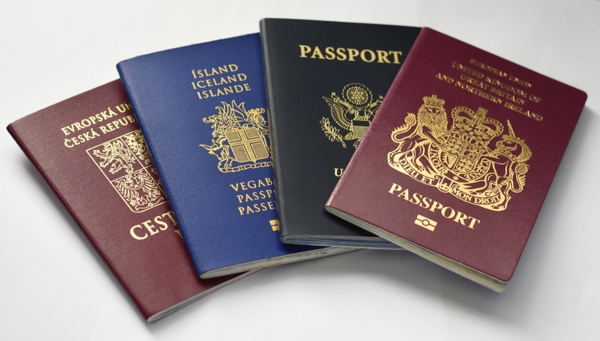Debunking the Claim That Puerto Rico’s Tax Benefits Are “Hype” or “Too Good to Be True”

It was only a matter of time before it happened.
After releasing our groundbreaking free guidebook, How to Legally Remove Yourself from the U.S. Tax Code, without Leaving America, new and old misconceptions about Puerto Rico’s tax benefits have surfaced.
The purpose of today’s article is to drive a stake through the heart of these misconceptions and forever put them to rest.
And there is really no better person on the planet to do that than David Nissman, a true authority on this topic.
David Nissman was appointed by former US President George W. Bush to be the United States Attorney for the US Virgin Islands. He regulated the tax incentive programs there—which have many similarities to the Puerto Rico incentives—for the US federal government during his tenure. He also has written a number of the economic development statutes in place today.
David has since left the dark side and now represents US taxpayers in IRS audits concerning tax incentive programs in the US Territories—like the Virgin Islands and Puerto Rico. His current and former experiences gives him unparalleled insight into the US government’s thinking behind Puerto Rico’s tax incentives.
After reading this article, you should have no doubt that Puerto Rico’s tax incentives are not “hype” and not “too good to be true.” The fact is, they are 100% real and legal. And for those who obtain them, they are here to stay.
Puerto Rico’s tax incentives may allow you to totally eliminate all forms of taxation on capital gains, interest, and dividends and reduce your corporate income tax rate to just 4%. Americans can find similar benefits nowhere else in the world short of renouncing their citizenship. Much ink has been spilled on this already, so if you are new to Puerto Rico’s tax incentives see here to get all caught up.
David will also show that:
- Puerto Rico’s tax incentives are not some fly-by-night thing. They fit into the economic development policy that has been supported by the US federal government and both political parties for many decades.
- It’s nearly impossible for either the US or Puerto Rican governments to end the tax incentives for those who already have obtained them.
Now, we aren’t saying it is impossible that these tax incentives could go away for new participants. That is a possibility, but also not a very likely one. It is also an incentive to obtain your tax benefits from the Puerto Rican government (which come in the form of a legally binding contract) as soon as possible—because once you’ve received your contract giving you your tax benefits, it will be almost impossible for anyone to take them away from you prospectively or retroactively, no matter how hard some politicians will stomp their feet.
Even if the benefits were to somehow magically disappear after a couple of years, you could still reap enormous benefits from participating in them. My colleague Louis James remarked that even if the tax incentives last only for five years, he’d be able to pay for his condo with his tax savings.
And now without further ado, I’ll turn things over to David Nissman, who will put these misconceptions to bed for good.
Until next time,
 |
|
 |
Nick Giambruno |
By David Nissman
When the United States began its relationship with Puerto Rico and the other Territories in the Caribbean in 1898, they were poor and had been economically oppressed. The US government sought to help create financial independence with economic development policies. This was not wholly altruistic. If the Territories were not financially independent, they would be a burden on the federal government.
From the start in the early 20th century, the Territories’ use of incentives to develop their economies was challenged as unconstitutional in violation of Article 1, Section 8, which required that “all duties, imposts, and excises shall be uniform throughout the United States.” The Supreme Court in a line of cases known as the Insular Cases used a line of deprecating and racially insensitive reasoning to accord all inhabitants of the Territories less than full constitutional rights. The less than satisfying trade-off in the outflow from the Insular Cases was that the Territories’ ability to use special tax laws to develop their economies was not restrained by Article 1, Section 8 of the US Constitution.
This policy began in 1900 with the advent of the Foraker Act, which set up the first municipal government in Puerto Rico and permitted Puerto Rico to utilize special taxing measures. During the 114 years since the Foraker Act, Congress and the local governments in the US Territories have enacted many different programs to help the Territories raise revenues. President Herbert Hoover, visiting the Virgin Islands in 1931, was stunned at the poverty and declared:
“[W]e acquired an effective poorhouse, comprising 90 percent of the population. The people cannot be self-supporting either in living or government without discovery of new methods and resources. The purpose of the transfer of administration from the naval to a civil department is to see if we can develop some form of industry or agriculture which will relieve us of the present costs and liabilities in support of the population or the local government from the Federal Treasury or from private charity…. [H]aving assumed the responsibility, we must do our best to assist the inhabitants.”
—New York Times, March 27, 1931
Congress in 26 USC 933 (Puerto Rico) and in 934 (the Virgin Islands) has passed statutes that enable the local governments to grant benefits on territorial source income to territorial residents. These laws have been firmly in place since 1960.
Critics always opine that Congress and or the Territorial governments can take these laws away, but they neglect an important component of the legal relationship between the United States government and its Territories. The Territories have a very special status: according to US Supreme Court case law, the Territories have the status of federal agencies. If a federal agency grants a contract to a business or individual, the federal government is bound to honor it. It would be a violation of the Contracts Clause of the US Constitution to take it away. So if an individual or business holds a contract from the Puerto Rico government granting these tax benefits (Act 20, Act 22), the contract is enforceable against both the Puerto Rican and US governments. Not even Congress can affect existing contracts.
Puerto Rico’s tax incentives are carefully considered programs. The Puerto Rican government based them on the Virgin Islands Economic Development Commission (VI EDC) programs. The VI EDC program has been fully vetted and litigated in the federal courts. Everyone recognizes the legitimacy of these programs and how they are part of US developmental policy toward US Territories. The bottom line is, Puerto Rico’s tax incentives are very sustainable.
Because of the continuing discussions in Congress about reforming the tax code, there is quite a bit of fearmongering that Congress may somehow repeal these programs.
Two points must be considered when hearing this:
1) Do we actually believe that our gridlocked Congress is currently capable of reaching a bipartisan agreement to overhaul the US tax code? While the tax code is in serious need of overhaul, this is a project that is years away. When there finally is new tax legislation, the Territories will lobby hard—with the US Department of the Interior (DoI) firmly on their side—to continue making these benefits available.
The United States DoI continues to recognize that the Territorial tax incentives are a necessary component of US developmental policy toward its Territories. In July, 2005, the DoI filed a written statement concerning its own concerns with new tax regulations for the Territories. The paper noted that (emphasis mine):
[t]he Secretary of the Interior has stated that her top priority for the Insular Areas is to promote private sector economic development there. Under the Secretary’s leadership, the Department of the Interior has been implementing a comprehensive program to advance this priority …. Because of the special fiscal and economic challenges faced by the Insular Areas, it has been the policy of successive administrations from both parties to support tax and trade provisions to help the Insular Areas generate sufficient tax revenue and economic activity to meet the most basic needs of their people. Notwithstanding these incentives, each of the Insular Areas continues to experience severe economic and fiscal difficulties. Special tax provisions for the Insular Areas, in particular, manifest an important underlying principle of US territorial policy: The Federal government does not treat the Insular Areas as sources of revenue. The US has a strong interest in maintaining and enhancing the economic and fiscal well-being of the Insular Areas.
—Statement of the US Department of the Interior, Office of Insular Affairs on Temporary and Proposed Regulations to Implement the American Jobs Creation Act of 2004 (July, 2005)
2) Whether these programs change one day or whether Puerto Rican statehood requires different tax rules, the individuals and businesses that have decrees with the Puerto Rican government will have to be grandfathered in based on the Contracts Clause in the US Constitution. Those individuals and businesses interested in moving to Puerto Rico would be wise to get moving to the extent there is any fear of legislative change.
Finally, it is also not very likely that the Puerto Rican government itself will end these programs. Attracting wealthy people and profitable businesses to relocate to Puerto Rico through these programs is attractive to both of the major political parties in Puerto Rico. Given the financial crisis in Puerto Rico, it is unlikely that the local government—which has committed large resources to marketing these programs—will suddenly embark on a different direction.
In conclusion, those who lawfully fulfill the purpose and requirements of the Territorial tax incentive programs—like Puerto Rico’s Acts 20 and 22—should feel confident that their contracts will be honored by both governments.
Editor’s Note: How to Legally Remove Yourself from the U.S. Tax Code, without Leaving America is the authoritative guide on the Puerto Rico option. It’s been reviewed by dozens of professional sources in Puerto Rico and the mainland US, including top law firms and accountants. It’s an A-Z guide with information you won’t find anywhere else. And for a limited time we are giving it away for free. If you’re considering taking advantage of these incentives, get started with this guidebook. It will save you a lot of time and money in the process. Click here to obtain your free copy today.
Tags: puerto rico,






